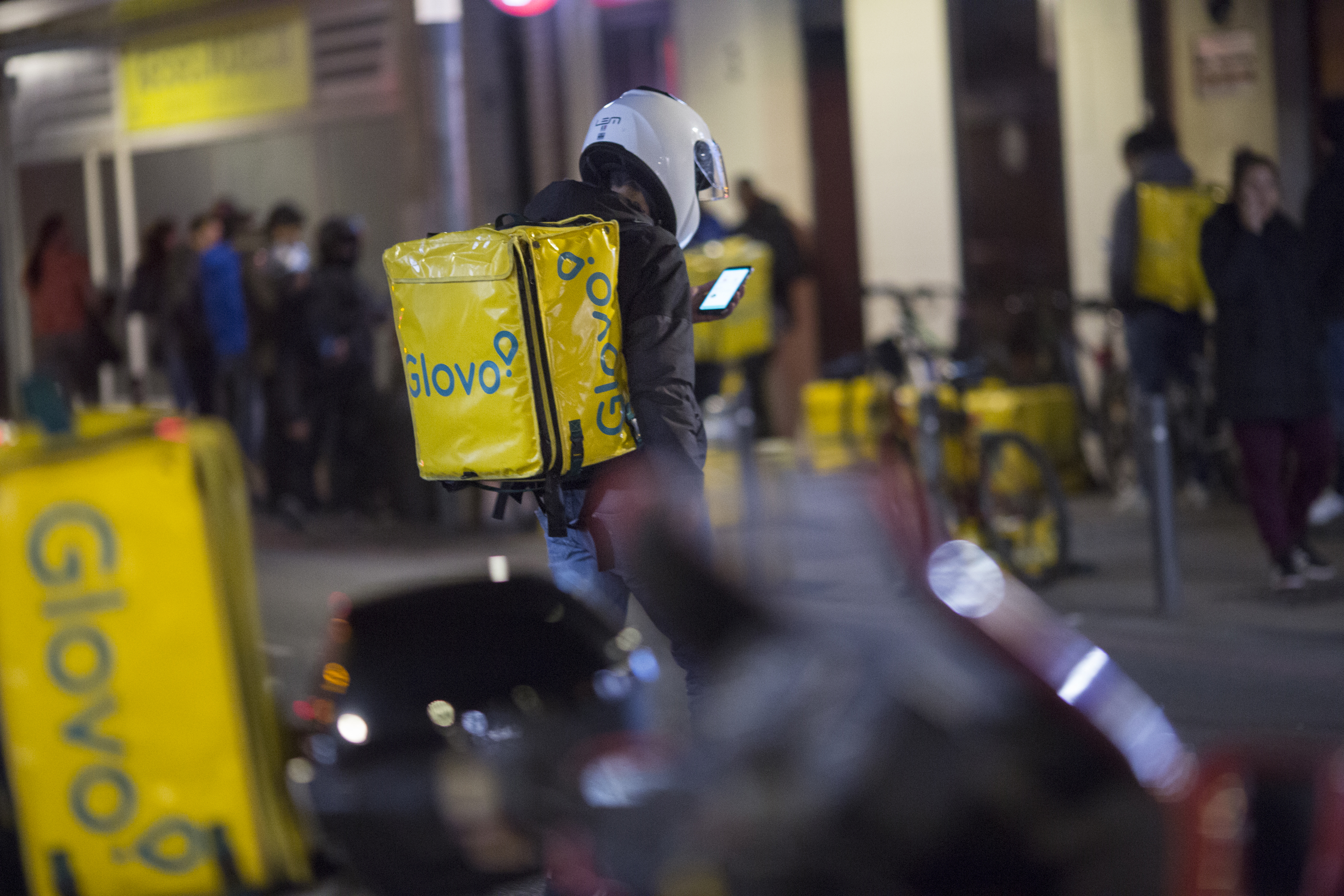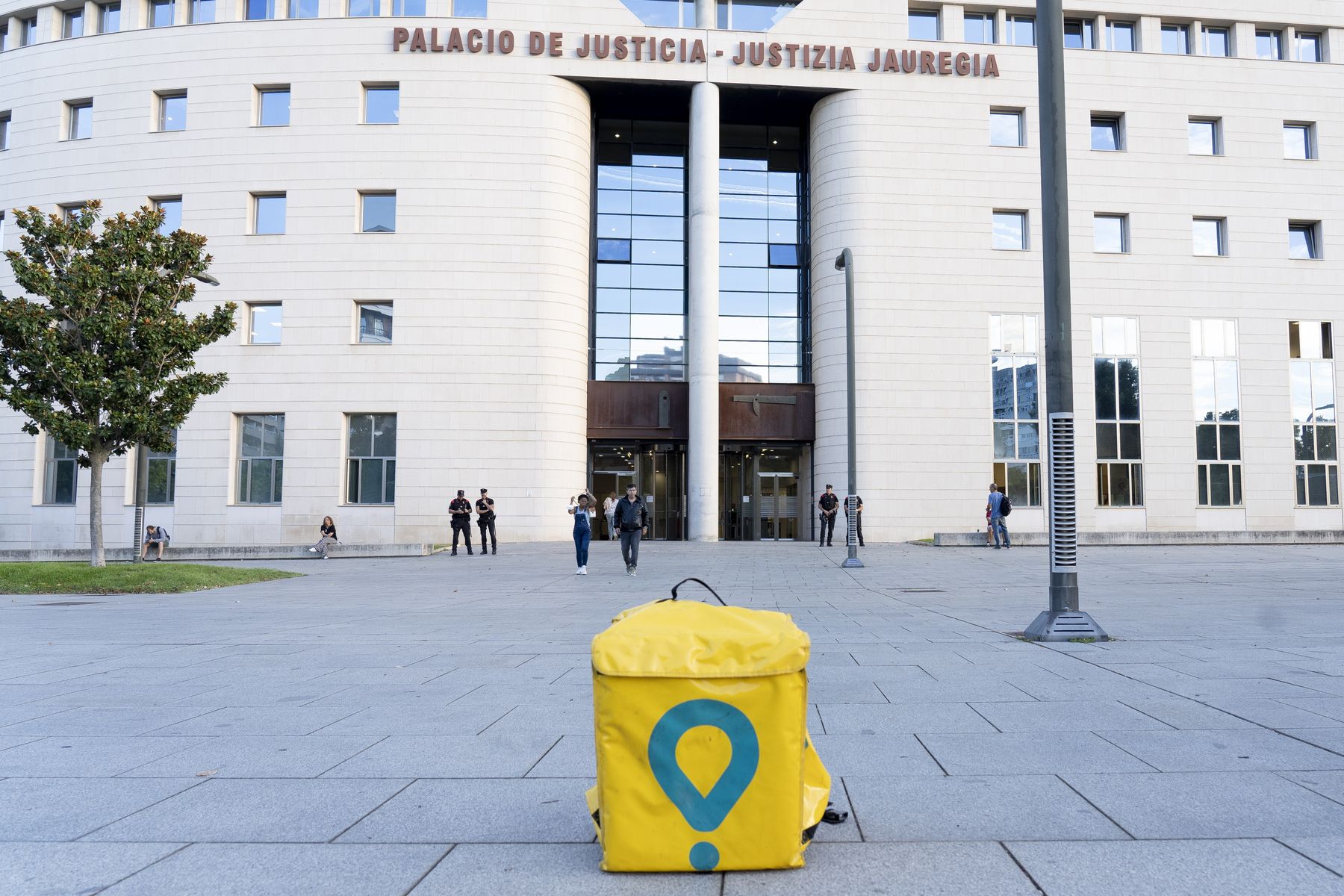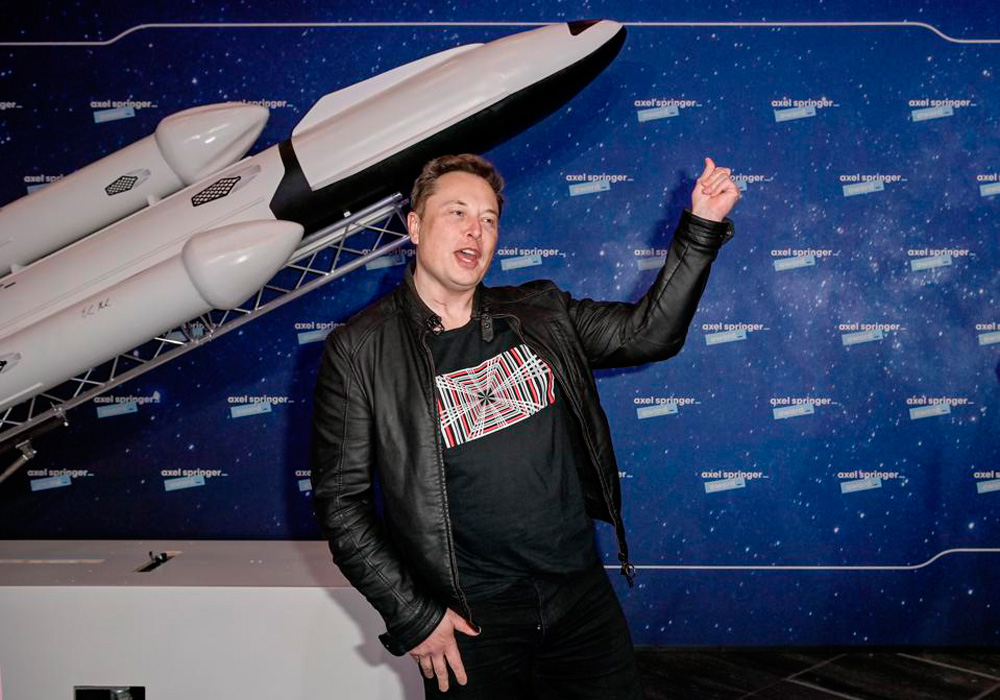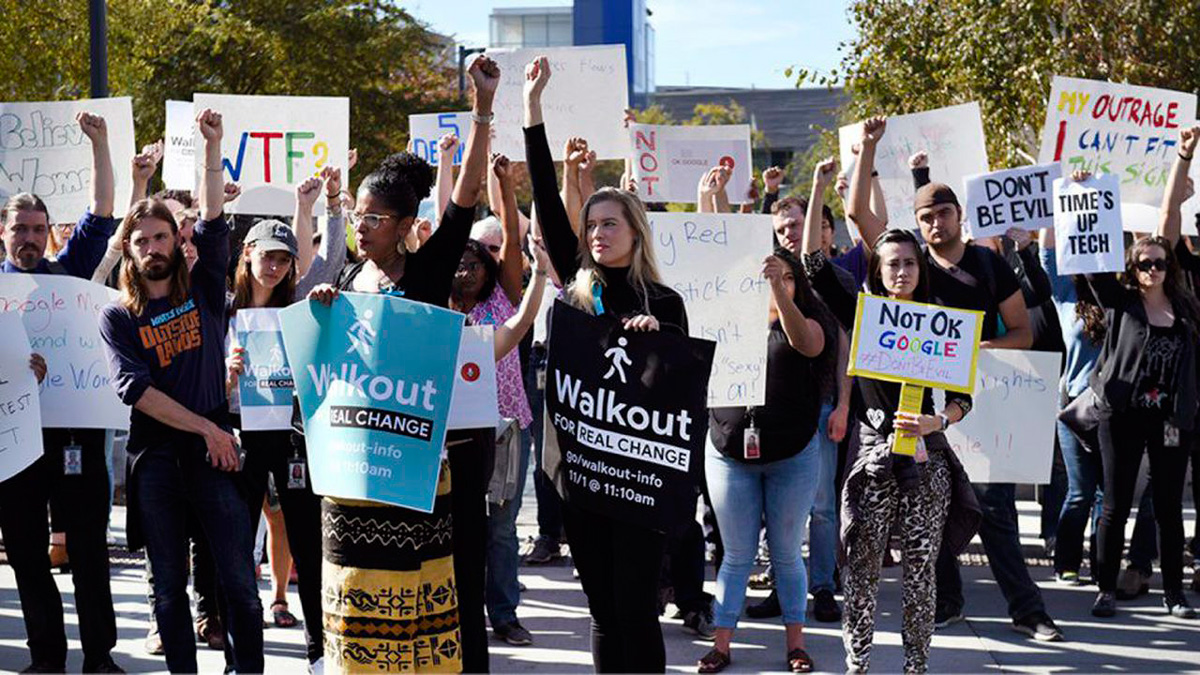Are you sure it's good for restaurants?
- This is the second article in a series of four paragraphs. It analyzes Glovo's business model and its relationship with the environment. After interviewing the restaurant owners who are working with Glovo and based on a thorough study, we have analyzed the influence of on-demand distribution platforms in the hospitality sector, as well as the monopolistic tactics they use. Initially, the distribution service for these companies may seem like a means to make easy money, but it can actually be a significant expense for restaurants.

Lately, the news of the exploitative situation in which the Glovo riders work is spreading, more and more people see the yellow backpack distribution company with a critical eye. It is satisfactory to raise awareness of the situation of workers, but, at the same time, most criticisms leave out a major actor in history: Restaurants that collaborate with Glovo. It is essential to analyse their role, as they are the main source of revenue for Glovo, and not the 1.90 euros that customers pay for each order.
Restaurants that have signed a “collaboration” contract with Glovo have to deliver between 22 and 30% of what they have earned with each order to the distributing company. It's the main way to get money. Imagine that in a hamburger in your city you want to make a request of 40 euros; in that case, the restaurant would pay Glovo between 8.80 and 12.00 euros. In Glovo’s words, this is a beneficial deal for restaurants: although part of each order has had to be paid to the distributing company, they have more customers in return. In the propaganda sent to restaurants to spread this argument, there are several examples of success chosen “randomly”. One of these restaurants, for example, had 190 percent more orders a month after starting to work with Glovo. In propaganda, Glovo is willing to share benefits with restaurants and items to easily obtain new requests at no cost. He wants to make them believe that they can get more money without increasing the expenses they already have: salaries, rent, insurance.
However, it is difficult to verify this type of declarations, especially in hospitality, where it is especially difficult to solve financial calculations. According to the above reasoning, the restaurant has won 70% of an extra petition that would not have existed without the intervention of Glovo. The idea seems attractive, but it's totally misleading. This calculation does not take into account any expenditure related to the activity of restaurants, such as the component, salary or rental. Once these costs have been taken into account, the restaurant would benefit from a net profit of between 6% and 22% of a normal order. If we compare this percentage to the 30% represented by Glovo, then it seems that restaurants have the needle longer than the thread.
In any case, care should be taken with simple calculations: A single application via Glovo will not increase staff costs or rent, but a wide range of requests. More complex but accurate studies tell us that digital distribution platforms are progressively undermining restaurants from the core business activity of their businesses -- giving food to their customers -- that make them move away from a less lucrative service -- taking orders over the Internet. Restaurants are also at risk of losing money, if there is a large imbalance between demand and the number of traditional customers.
To check all this, we have to analyze the evolution of restaurants that have worked for a long time with companies like Glovo. In an in-depth analysis published in New Yorker magazine, the restaurant owner said it is difficult to calculate the exact benefit of a petition, but online applications are three years after they have become their primary responsibility, three times less net profit margin than before. “We have demonstrated this clearly: the more food, the less benefits we have... I believe that with petitions we only lose money or, at least, recover what we have spent.”
According to a study carried out in 2017, 43% of internet food users in the United States are estimated to be in the U.S. United States
As these types of distribution companies expand, the tendency to order food from home is expected to increase, with the influx of people to restaurants decreasing. According to a study carried out in 2017 by investment bank Morgan Stanley, 43% of internet food claimants in the United States claimed to have replaced the habit of going to the restaurant on demand for online food. In other words, as Glovo expands, it cannibalizes local restaurant revenue sources, so restaurants are forced to work with Glovo and pay 30% of their sales. Before, many of these customers bought the food in the restaurants themselves and the restaurants earned all the price.
These practices are nothing more than blackmail or, in the words of entrepreneurs, monopolistic business tactics. Glovo has become an essential intermediary in relations between several companies and their customers, and is therefore in a privileged position because of its influence on both. And in business, influence generates benefits.
Situations of dependency
Many advocate the changes that the on-demand or ordering economy has brought to the distribution sector and claim that they are as natural as inevitable. Businesses have, in their view, only adapted to consumer demands. This reasoning, in addition to avoiding the huge amounts of money spent on advertising in order to modify the “consumer demand”, does not take into account the structural changes that have taken place in the sector.
The following steps given by Glovo show these changes: he has abandoned these suspicious restaurants that do not want to join him and has started to create businesses that only work through his application, such as the dark kitchens and supermarkets “SuperGlovo”. The “Dark kitchens”, dark kitchens, are the headquarters that Glovo rents to cooks, so that, instead of creating a normal restaurant, they can work in kitchens lit with agile lamps. No servers, no tables, no chairs. Therefore, they need Glovo to maintain the physical space and get customers, distribute all the food they prepare through the riders. And yet, despite Glovo’s total dependence, all economic risks are borne by cooks alone.
.jpg)
This new form of business allows you to lose that social interaction with people when you go out to eat outside of the house and, in return, gives you a cold and aseptic action on the couch itself. Thus, most of us would refuse to participate in a food industry of this kind, but for Glovo the system is round: all the pieces are under his control.En all the sectors in which Glovo participates, every economic
actor has tried to bring him to the greatest possible situation of dependency, keeping the distance between them so as not to assume economic risks. This strategy is very detrimental to restaurants, as it is to distributors.
In search of the monopoly
The clearest example of this monopolistic behaviour is in Egypt. A year ago, rival distributor Delivery Hero acquired 16% of Glovo’s shares, which gave it the right to influence its strategic decisions. Some of the company’s senior officials claim that Glovo became the biggest company in the sector in Egypt, just before he suddenly left that country. The Egyptian Competition Authority, after investigating the case, complained that both companies had agreed to divide the market between the two companies and establish a monopoly.
Uber is “pioneering” among the companies that have renewed this old practice. Although many people do not know, Uber loses every year from the very beginning, it had already disappeared without the 20 billion euros it had entered into its investments. Uber's investors have assumed over the past four years a loss of 14,000 million euros because it was all part of a strategy: they want to throw away all the competitors from the business by hugely lowing the prices of taxis. This loss was only reduced in 2018, and it was because the driver paid less than the minimum wage the previous year. As a result, at the end of that year a third of Uber workers lost money even though they had been working.
Uber's real strategy has always been to maintain growth through capital injections until urban car services are fully controlled and the monopoly is completed. That's Glovo's strategy. They have nothing else, because the company model is not able to generate value and has no assets.
Differences, the situation resembles a cruel colonialism of yesteryear. Glovo is immersed in a global moral crusade to improve people’s lives, although no one has called for such “improvements”. To do this, it uses the privileged knowledge of the company, which today is known as algorithms and big data, to capture and restructure on demand local, complex and solid economies. It destroys the autonomy of those economies that were able to succeed in the future and turns them into activities based on monoculture, which only serve to create goods for foreign interests through slavery.
Like the drug Crack
Apparently, Glovo's proposal to restaurants is as expensive as the limiter. So why does a restaurant want to “collaborate” with Glovo? Because the service offered by Glovo meets a need that many restaurants have. In Vitoria, in the words of a hospitality entrepreneur: “[Glovok] Do you want me to pay more for the riders? Lower cost for the restaurant? Yes, of course. But I cannot hire a dealer on my own in this restaurant: one day I can only have one order and, the next day, ten”. This person manages the restaurant next to the family and is at the beginning. They don't have the expertise to do these kinds of steps in today's changing market. Glovo, for its part, “works pretty well”, as instead of hiring a full-time dealer, it offers them a simple service and so you don’t have to worry about the number of orders.
Restaurants think they'll be able to give up Glovo's service soon, but they're actually becoming more and more dependent.
Although most of the restaurants in Vitoria-Gasteiz that work with Glovo are satisfied with the service, some do not agree with what they have received in payment. Some of those who have denied the contract have told me their complaints: paying between 22% and 30% of the requests is a difficult condition to swallow, all too often they have to wait a long time, dealing with the company is not always reliable or simply cannot accept such a deep dependence on another company. Once, a rider tried to buy food in a restaurant that has no contract with Glovo, at the customer’s request. The owner refused to sell it, so the customer made the petition directly to the restaurant. Given that this restaurant is a distributor of its own, what do you pay to another 30% of the price?
It is true that, for a hospitality segment, this service can at least help in the beginning of the business. In such cases, there are occasionally a few points to be made and hiring a full-time dealer is an excessive expense. Big companies like McDonald's can also benefit from their size, as they can get good deals. But for most restaurants it is very difficult to know if the Glovo proposal is beneficial: identifying expenses and benefits is absolutely complicated. Glovo takes advantage of this uncertainty to give your business a better look than it does. In the meantime, the restaurant believes that it will soon be able to give up this service, but it actually develops an increasing dependence. As stated by an owner in New Yorker, this distribution service is “similar to crack drugs”: his business has developed dependency on that income, but at the same time, surely that same dependency will end the business.
Reporting translated into Basque by Diego Pallés Lapuente
Telelana lan-antolaketa berri bihurturik da langile askorentzat. Koronabirusak hala beharturik, azken urteetan helburu zutena egunetik biharamunera errealitate bihurtu zaie numerikoaren sektoreko oligarkei. Jendea etxetik dabil lanean, internet bidez. AEBetako Silicon Valleyn... [+]























